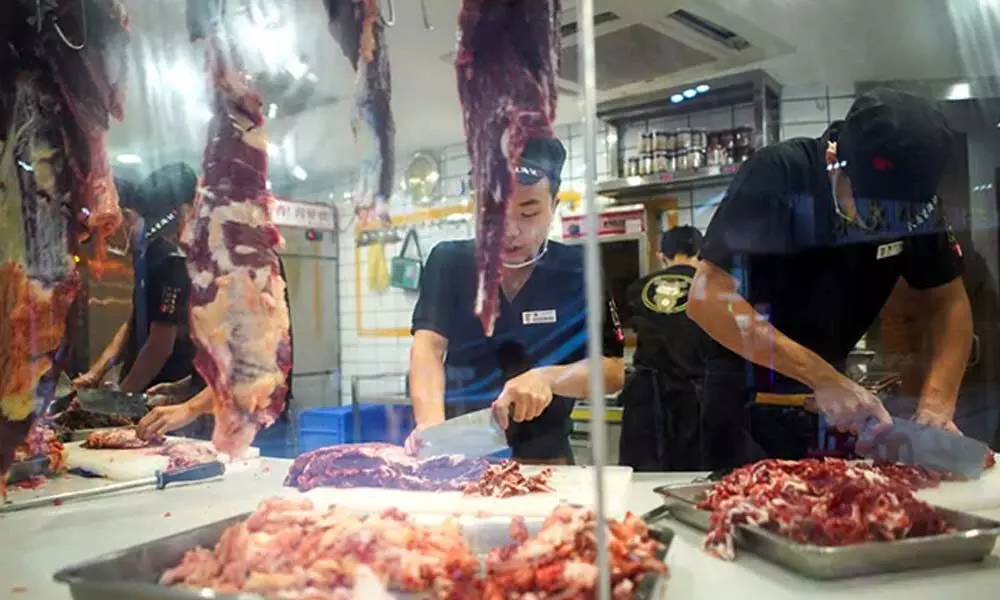Live
- KJo on 23 years of ‘Kabhi Khushi Kabhie Gham’: One of those pinch me moments
- WPL 2025 auction: Nandini, Kamalini set to be most sought-after names
- MP CM to inaugurate Sarsi resort in Shahdol, 200-bed hospital in Mauganj today
- TGPSC makes arrangements for Group-2 exams to be held tomorrow
- WPL 2025 Auction: When and where to watch, date, time, live streaming, venue
- Japan: Citizens protest US military-related sexual violence
- Buy on dips strategy working well in Indian stock market amid sharp rebound
- Sri Lanka concludes sovereign bond restructuring
- Lal Krishna Advani hospitalised at Delhi's Apollo Hospital
- Modi performs puja at Triveni
Just In
China's Shenzhen Bans Eating Of Cats, Dogs After Coronavirus Outbreak


China coronavirus: Authorities in the southern Chinese technology hub said the ban on eating dogs and cats would come into force on May 1. China's top legislature said in late February it was banning the trade and consumption of wild animals.
Shenzhen, China: The Chinese city of Shenzhen has banned the eating of dogs and cats as part of a wider clampdown on the wildlife trade since the emergence of the new coronavirus. Scientists suspect the coronavirus passed to humans from animals.
Some of the earliest infections were found in people who had exposure to a wildlife market in the central city of Wuhan, where bats, snakes, civets and other animals were sold.
The disease has infected more than 935,000 people around the world and killed some 47,000 of them.
Authorities in the southern Chinese technology hub said the ban on eating dogs and cats would come into force on May 1.
"Dogs and cats as pets have established a much closer relationship with humans than all other animals, and banning the consumption of dogs and cats and other pets is a common practice in developed countries and in Hong Kong and Taiwan," the city government said in an order posted on Wednesday.
"This ban also responds to the demand and spirit of human civilization."
China's top legislature said in late February it was banning the trade and consumption of wild animals.
Provincial and city governments across the country have been moving to enforce the ruling but Shenzhen has been the most explicit about extending that ban to dogs and cats.
Dogs, in particular, are eaten in several parts of Asia.
Liu Jianping, an official with the Shenzhen Center for Disease Prevention and Control, said that the poultry, livestock and seafood available to consumers were sufficient.
"There is no evidence showing that wildlife is more nutritious than poultry and livestock," Liu was quoted as saying by the state-owned media Shenzhen Daily.
Shenzhen's initial rules, first proposed in late February, appeared to ban the consumption of turtles and frogs - both common dishes in China's south.
But the city government acknowledged this week that this had been a "a hot point of controversy" and clarified that both could be eaten.
The city's campaign to stop the eating of wildlife has won praise from animal welfare groups.
"Shenzhen is the first city in the world to take the lessons learned from this pandemic seriously and make the changes needed to avoid another pandemic," said Teresa M. Telecky, the vice president of the wildlife department for Humane Society International.
"Shenzhen's bold steps to stop this trade and wildlife consumption is a model for governments around the world to emulate."

© 2024 Hyderabad Media House Limited/The Hans India. All rights reserved. Powered by hocalwire.com






